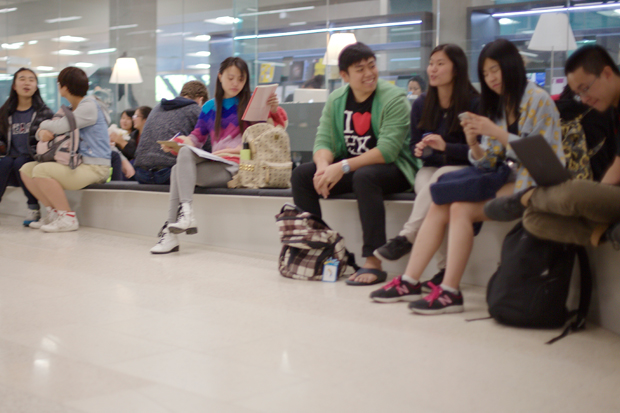English language critical factor for international students’ academic success
DOMESTIC students say some international students aren’t prepared for the academic rigour and linguistic requirements of university life, and poor English language abilities are to blame. Stephen Clarke reports.
More attention needs to be paid to ensure international students are able to cope with the academic rigour and linguistic requirements of university life.
While not indicative of the general international student population, domestic students say it is not uncommon to see their international student counterparts struggling in class.
The students Meld spoke to were from universities around Melbourne, and in each case, the students said their classes comprised of at least 40 per cent international students.
The issue was brought into sharp focus in a recent Four Corners report by the ABC, looking at the recruitment practices of international students by Australian universities, corrupt agent practices, soft-marking in universities and mass cheating.
The program pointed to a larger underlying problem, the falling English-language standards of international students entering the Australian education system.
Australian universities can set their own cut-off requirements for English proficiency tests.
Figures obtained by the ABC show that the University of Canberra, which uses the Test of English as a Foreign Language (TOEFL), has minimum band requirements of just 8 out of 30 for reading and 7 out of 30 for listening.
By comparison, Monash University requires a minimum of 13 and 12, for reading and listening respectively, and the University of Western Sydney calls for a minimum score of 21 for writing and 18 in each other band of the TOEFL for reading, listening and speaking.
Most Australian universities offer bridging English courses for students who meet academic requirements but fall short in their English proficiency test. Upon completion, students gain entry into first, and sometimes second year of university.
While the bridging courses have help raised students’ English language proficiency as well as prepared them for Australia’s teaching and learning environment, some international students still find it challenging to understand the material covered in their courses.
Swinburne University business student Ben said he was sometimes unsure how much information international students were taking in.
“I wonder how some people from overseas are able to process the information, it is often very in-depth and requires a high level of English and I wonder how some people are able to pass their subjects,” he said.
He found that classes could often be delayed as the tutor had to relay instructions repeatedly.
“The information needs to be broken down by the tutor and they often spend more time on the international students,” he said.
When it came to group work, Ben said he sometimes had to reword the contributions of international students and give them detailed instructions on their workload and what was required of them.
RMIT biotechnology student Melanie said she found herself assuming a larger portion of the workload in group assignments at times.
“Less work was assigned to international students because they were unable to comprehend the course work well,” she said.
Melbourne University electrical engineering student Josh however, said most of the students in his classes had a strong grasp of English – barring a few outliers.
“Personally I have not felt that my learning during class has been affected,” Josh said.


